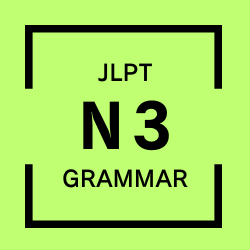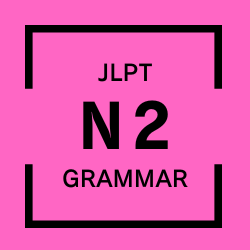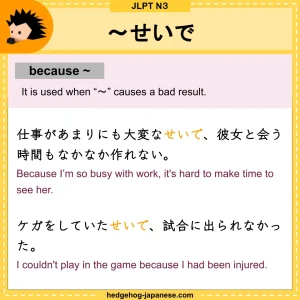ケガをしていたせいで、試合に出られなかった。
I couldn't play in the game because I had been injured.

意味
~ので/~が理由で(悪い結果になった)
用法
良くない結果の原因が「~」であると言いたいときに使われます。良い結果が起こった理由を述べる時には使えません。
英語 because ~
"-seide" is used when you want to state the cause of some bad result. It cannot be used to state the reason why a good result occurred. If a speaker is not sure it is the cause, "seika" is used instead of "seide".
詳しい文法解説 grammar point
▷「せいで」vs「 おかげで」
理由を述べるため文型は「ので」や「から」など様々ありますが、「A せいで B」は、「B」という望ましくないことの原因が「A」であると言いたいときに使われます。
逆に、「B」という望ましいことが起こった要因が「A」であると言いたいときは「A おかげで B」を使います。
1. 先生のせいで試験に落ちた。
※試験に落ちた=悪い結果
I failed the exam because of my teacher.
2. 先生のおかげで試験に受かった。
※試験に受かった=良い結果
Thanks to my teacher, I passed the exam.
▷ ~せいか
話し手が、それが理由だと確信しているわけではない場合は「せいか」が代わりに使われます。
3. 風邪を引いているせいか、体がだるい。
I feel sluggish, probably because I have a cold.
▷ 「B は A せいです」
例文4,5のように、「せいだ/せいです」などの形で述語の位置で使われることもあります。
4. 遅刻したのは、電車が遅れたせいです。
I was late because my train was late.
5. 観客が少なかったのは、宣伝の仕方が悪かったせいだ。
The reason why the audience was small was because of the poor advertising.
接続 formation
V/イ形/ナ形/N(普通形) + せいで / せいか
※ナ形の非過去肯定:だ→な
※名詞の非過去肯定:だ→の
関連文法 related grammar

~おかげで/~おかげか
- JLPT N3 Grammar

~ため/~ために
- JLPT N3 Grammar

N+につき
- JLPT N2 Grammar
例文 example sentences
・説明が足りなかったせいで、彼女に誤解された。
Because of my lack of explanation, she misunderstood me.
・今回の災害のせいで、大変な思いをした。
I had a hard time because of this disaster.
・部屋があまりにも汚いせいで、必要なものがすぐに見つからない。
Because my room is so dirty, I can't find what I need right away.
・仕事があまりにも大変なせいで、彼女と会う時間もなかなか作れない。
Because I’m so busy with work, it's hard to make time to see her.
・親がいちいち口出しするせいで、子供のやる気が失せてしまっている。
Parents' constant meddling has discouraged their children.
・年をとったせいか、なかなか疲れがとれない。
Maybe it's because I got old, I can't get rid of my fatigue.
・昨日の夜たくさん飲みすぎたせいか、あまりいい目覚ではなかった。
I didn’t wake up well, maybe because I drank too much last night.
・今日は雨のせいか、いつもよりお客さんが少ない。
Perhaps because of the rain, there were fewer customers than usual today.
・お昼ごはんを食べすぎたせいか、さっきから眠たくてしょうがない。
Maybe it is because I ate too much lunch, I've been feeling sleepy for a while.
・私が先生に怒られたのは、あなたのせいだよ。
The reason I got scolded by my teacher is you.
・試験に合格しなかったのは、努力しなかったせいです。
The reason you did not pass the exam was that you did not try hard enough.
・説明が足りなかったせいで、彼女に誤解された。
Because of my lack of explanation, she misunderstood me.
・今回の災害のせいで、大変な思いをした。
I had a hard time because of this disaster.
・部屋があまりにも汚いせいで、必要なものがすぐに見つからない。
Because my room is so dirty, I can't find what I need right away.
・仕事があまりにも大変なせいで、彼女と会う時間もなかなか作れない。
Because I’m so busy with work, it's hard to make time to see her.
・親がいちいち口出しするせいで、子供のやる気が失せてしまっている。
Parents' constant meddling has discouraged their children.
・年をとったせいか、なかなか疲れがとれない。
Maybe it's because I've gotten old, I can't get rid of my fatigue.
・昨日の夜たくさん飲みすぎたせいか、あまりいい目覚めではなかった。
I didn’t wake up well, maybe because I drank too much last night.
・今日は雨のせいか、いつもよりお客さんが少ない。
Perhaps because of the rain, there were fewer customers than usual today.
・お昼ごはんを食べすぎたせいか、さっきから眠たくてしょうがない。
Maybe it is because I ate too much lunch, I've been feeling sleepy since a while ago.
・私が先生に怒られたのは、あなたのせいだよ。
The reason I got scolded by my teacher is you.
・試験に合格しなかったのは、努力しなかったせいです。
The reason you did not pass the exam was that you did not try hard enough.
<参考文献>
三浦佑子(2007)複文における複合接続助詞の機能- 「せいで」・「おかげで」について一
境希里子「おかげ」と「せい」について-用例分析を中心に-


If you have any questions, please comment below.
